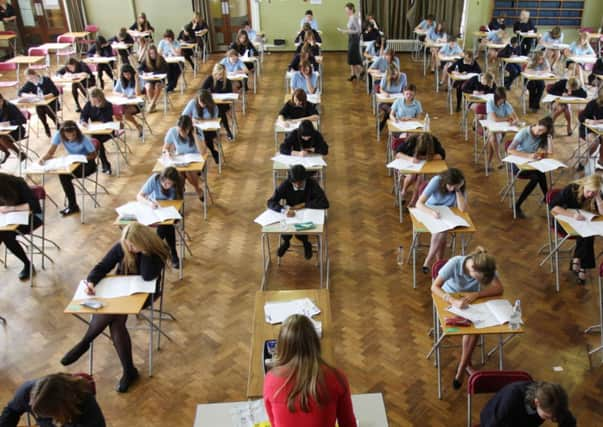Head warns exam reforms will affect league tables


The Association of School and College Leaders (ASCL) has warned against judging the nation’s schools on one set of exam results, saying too much has changed compared to 2013 to draw accurate comparisons from year to year.
The warning comes just days before new performance data showing how every secondary in England is doing at GCSE and A-level is set to be published.
Advertisement
Hide AdAdvertisement
Hide AdUnder the current system, schools are considered to be failing if fewer than 40 per cent of their students score at least five Cs at GCSE, including English and maths, and they do not meet national averages in pupil progress.
Around 150 schools are expected to fall below the threshold, and the numbers could be up compared to last year, it is suggested.
ASCL general secretary Brian Lightman said: “It is not possible to use this year’s performance tables to make accurate comparisons with previous years. Too much has changed in the way the tables are calculated. Both the Department for Education and Ofsted have confirmed this. No lines can be drawn between data in 2013 and 2014. This year only the first GCSE grade rather than the best grade counted, the English speaking and listening grade was removed, there were changes to the way vocational qualifications were counted, and some English GCSEs were not included. It is comparing apples and pears. In light of this the current floor targets are pretty much irrelevant.”
GCSE results published last summer, which are used in this week’s statistics, showed that across England, Wales and Northern Ireland, the proportion of exams awarded a C or higher had risen for the first time in three years.
Advertisement
Hide AdAdvertisement
Hide AdBut there was a sharp drop in English grades, with 61.7 per cent of entries scoring A*-C, down 1.9 percentage points from last summer. This is believed to be the biggest drop in the qualification’s history.